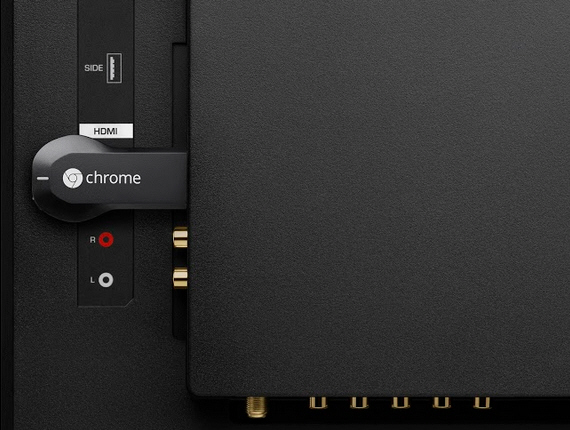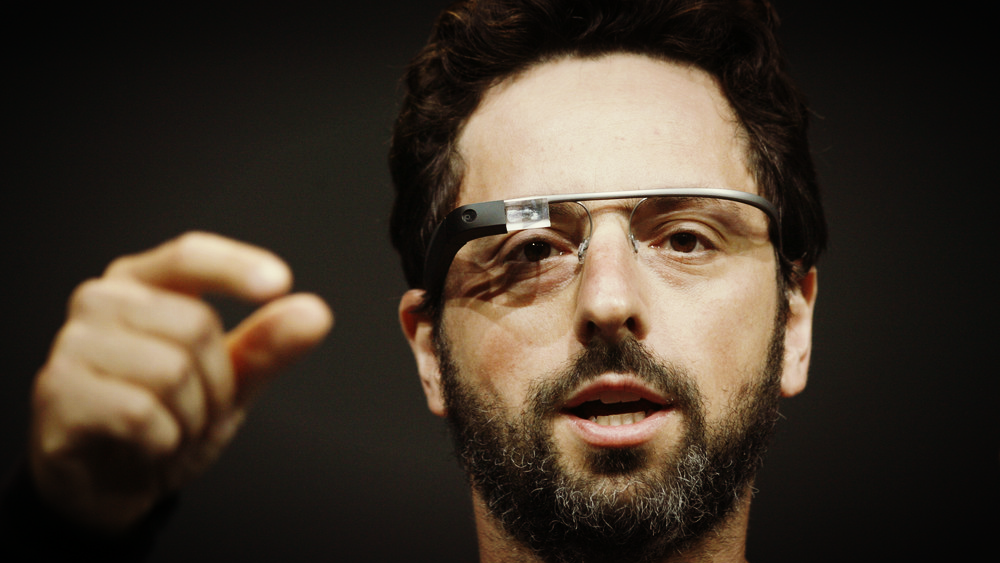
Google Chromecast -- Fabulous product or fabulous demo?
Yesterday Google announced a product called Chromecast -- a $35 HDMI dongle that’s essentially YouTube’s answer to Apple TV. While the event was more Googlish than Applesque (the venue was too small, the screens were too small, the presenters weren’t polished, and as a result the laughs and applause didn’t come) the product itself was astonishing -- or appeared to be.
The press picked-up on the most obvious headline item in the announcement -- the $35 selling price which drops to $11 if you factor in three months of free Netflix per dongle even for existing Netflix customers (now sadly dropped). That’s like Google attaching an $8 bill to every Chromecast -- something Apple would never do.

So that’s how H-1B visa fraud is done!
Mark Surich was looking for a lawyer with Croatian connections to help with a family matter back in the old country. He Googled some candidate lawyers and in one search came up with this federal indictment. It makes very interesting reading and shows one way H-1B visa fraud can be conducted.
The lawyer under indictment is Marijan Cvjeticanin. Please understand that this is just an indictment, not a conviction. I’m not saying this guy is guilty of anything. My point here is to describe the crime of which he is accused, which I find very interesting. He could be innocent for all I know, but the crime, itself, is I think fairly common and worth understanding.

Georgia Tech’s $7,000 polyester masters in computer science
In case you missed it, the Rambling Wrecks of Georgia Tech will next year begin offering an online masters degree in computer science for a total price of just under $7,000 -- about 80 percent less than the current in-state tuition for an equivalent campus-based program. The degree program, offered in cooperation with AT&T and courseware company Udacity, will cost the same no matter where the students live, though two thirds are expected to live and work outside the USA. Time to complete the degree will vary but Georgia Tech thinks most students will require about three years to finish. The program is inspired, we’re told, by the current hiring crisis for computer science grads -- a crisis that anyone who reads this column knows does not exist.
Programmers in Bangalore will soon boast Georgia Tech degrees without even having a passport.

Edward Snowden is trying to be Daniel Ellsberg on Twitter
What are the differences between Edward Snowden, the NSA whistleblower, and Daniel Ellsberg, who released the Pentagon Papers back in 1971?
Not much, really, but the distinctions that do exist are key:

Doug Engelbart, visionary
To most people who recognize his name Doug Engelbart was the inventor of the computer mouse but he was much, much more than that. In addition to the mouse and the accompanying chord keyboard, Doug invented computer time sharing, network computing, graphical computing, the graphical user interface and (with apologies to Ted Nelson) hypertext links. And he invented all these things -- if by inventing we mean envisioning how they would work and work together to create the computing environments we know today -- while driving to work one day in 1950.
Doug had a vision of modern computing back in the day when many computers were still mechanical and user interfaces did not even exist. He saw in a flash not only the way we do things today but also the long list of tasks that had to be completed to get from there to here. Now that's vision.

IBM to customers: Your hand is staining my window
A month ago I began hearing about impending layoffs at IBM, but what could I say beyond "layoffs are coming?" This time my first clues came not from American IBMers but from those working for Big Blue abroad. Big layoffs were coming, they feared, following an earnings shortfall that caused panic in Armonk with the prospect that IBM might after all miss its long-stated earnings target for 2015. Well the layoffs began hitting a couple weeks ago just before I went into an involuntary technical shutdown trying to move this rag from one host to another. So I, who like to be the first to break these stories, have to in this case write the second day lede: what does it all mean?
It means the IBM that many of us knew in the past is gone and the IBM of today has management that is, frankly, insane.

If it’s Ethernet versus Godzilla, then Godzilla is DOCSIS
Two weeks ago I was at the Computer History Museum to help observe the 40th anniversary of Ethernet. It was literally 40 years to the day since Bob Metcalfe drew his first sketches of what became the world’s dominant OSI Level 2 network technology. It was a fun and festive day that ended, believe it or not, with dancing. But some of the celebration didn’t make sense to me. Or, rather, it seemed to me that important parts of the discussion were missing.
When, for example, did 802.11 WiFi become a part of 802.3 Ethernet? That claim was made over and over during the day and helped power the argument that Ethernet is today a $100 billion business. Yeah, right.

Snowden and the NSA reflect a millennial climate change
Snowdon (not Snowden) is the name of the tallest mountain in Wales and while by Swiss or Colorado standards it may not seem like much the weather on Snowdon is unpredictable and has taken many lives. I climbed Snowdon as a schoolboy with my class and that day on the mountain another school group was lost in a blizzard and some boys died. This is what first came to mind when I heard about National Security Agency contractor Edward Snowden leaking documents and fleeing to Hong Kong. Like his namesake mountain, this Snowden is trouble for those who are overconfident or unwary.
I’ve written about this general topic many times over the years and doing a search here and at PBS will yield a great deal that I’d rather not have to repeat. We’ve been here before. Maybe not so much in terms of there being a whistle-blower or a traitor (your choice of terms -- I’d say whistle-blower), but these surveillance programs are either old hat or logical extensions of what came before. I’m not defending them, I’m saying we shouldn’t be surprised they exist.

I wish more companies had no exit strategies
I was with a friend recently who has a pretty exciting Internet startup company. He has raised some money and might raise more, his product is in beta and it’s good. It solves a difficult technical problem many companies are struggling with. We argued a little over the name of the product. Of course I thought my suggested name was better or certainly cleverer, but then he said, “It doesn’t matter because we’ll probably sell the company before the product ever ships. It may never appear at all.”
His company will exit almost before it enters. This is happening a lot lately and we generally think it is a good thing but it’s not.

Best Buy is doomed
Best Buy is in trouble you know. It’s in the news all the time. I wrote a big column about it myself last year. Same store sales have suffered, corporate employees are being laid off, the big U.S. electronics retailer is pulling out of Europe. Best Buy management is in turmoil. The founder leaves in a huff, then tries and fails to take the company private, and is now making nice-nice with the same management he previously reviled. There’s a new head of stores (I wish him well), who thinks the answer is price matching, better sales training and paying workers to sell more stuff, which sounds like commissions to me (Best Buy was always anti-commission).
All this drama is generally lain at the feet of Amazon.com on the Internet and Walmart down the street, both of which have reportedly been cleaning Best Buy’s clock. Only they haven’t. Best Buy has been killing itself with bad Information Technology. It’s been a long, long time since I introduced a new Cringely Law, but here comes one (I’m not sure what number this is), courtesy of Best Buy: compartmentalized IT can kill companies that are understaffed and overstressed.

The sneaky thing about Google Glass
Remember when Bluetooth phone headsets came along and suddenly there were all these people loudly talking to themselves in public? Schizoid behavior became, if not cool, at least somewhat tolerable. Well expect the same experience now that Google Glass is hitting the street, because contrary to nearly any picture you can find of the thing, when you actually use it most of your time is spent looking up and to the right, where the data is. I call it the Google Gaze.
Only time will tell how traffic courts will come to view Google Glass, but having finally tried one I suspect it may end up on that list of things we’re supposed to drive without.

Overdependence on one computer system grounds American Airlines
This is not a big story, but I find it interesting. Last week American Airlines had its reservations computer system, called SABRE, go offline for most of a day leading to the cancellation of more than 700 flights. Details are still sketchy (here’s American’s video apology) but this is beginning to look like a classic example of a system that became too integrated and a company that was too dependent on a single technology.
To be clear, according to American the SABRE system did not itself fail, what failed was the airline’s access to its own system -- a networking problem. And for further clarification, American no longer owns SABRE, which was spun off several years ago as Sabre Holdings, but the airline is still the system’s largest customer. It’s interesting that Sabre Holdings has yet to say anything about this incident.

H-1B visa shouldn’t be granted when Americans lose jobs
There’s an old joke in which a man asks a woman if she’ll spend the night with him for $1 million? She will. Then he asks if she’ll spend the night with him for $10?
“Do you think I’m a prostitute?” she asks.

Accidental Empires, Part 21 -- Future Computing (Chapter 15)
Twenty-first in a series. The final chapter to the first edition, circa 1991, of Robert X. Cringely's Accidental Empires concludes with some predictions prophetic and others, well...
Remember Pogo? Pogo was Doonesbury in a swamp, the first political cartoon good enough to make it off the editorial page and into the high-rent district next to the horoscope. Pogo was a ‘possum who looked as if he was dressed for a Harvard class reunion and who acted as the moral conscience for the first generation of Americans who knew how to read but had decided not to.

Accidental Empires, Part 20 -- Counter-Reformation (Chapter 14)
Twentieth in a series. "Market research firms tend to serve the same function for the PC industry that a lamppost does for a drunk", writes Robert X. Cringely in this installment of 1991 classic Accidental Empires. Context is universal forecast that OS/2 would overtake MS-DOS. Analysts were wrong then, much as they are today making predictions about smartphones, tablets and PCs. The insightful chapter also explains vaporware and product leak tactics IBM pioneered, Microsoft refined and Apple later adopted.
In Prudhoe Bay, in the oilfields of Alaska’s North Slope, the sun goes down sometime in late November and doesn’t appear again until January, and even then the days are so short that you can celebrate sunrise, high noon, and sunset all with the same cup of coffee. The whole day looks like that sliver of white at the base of your thumbnail.

